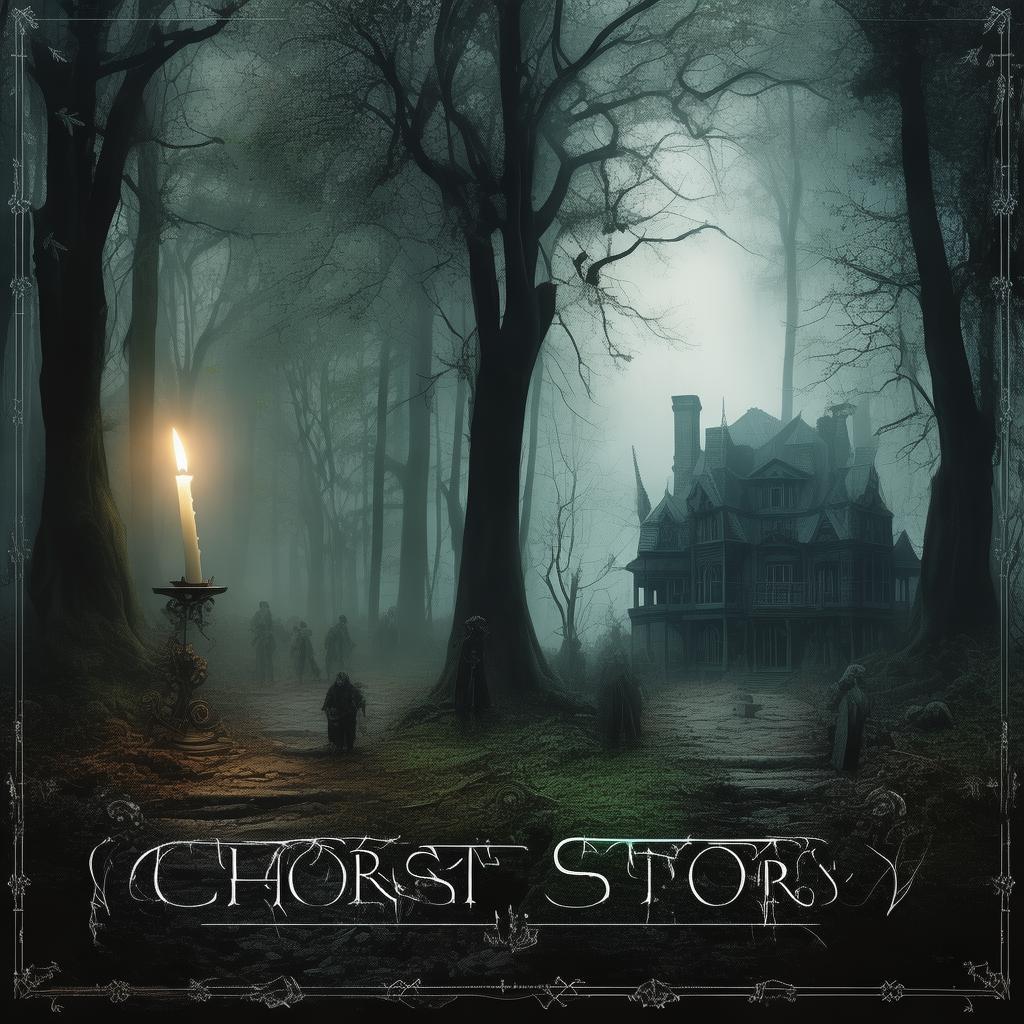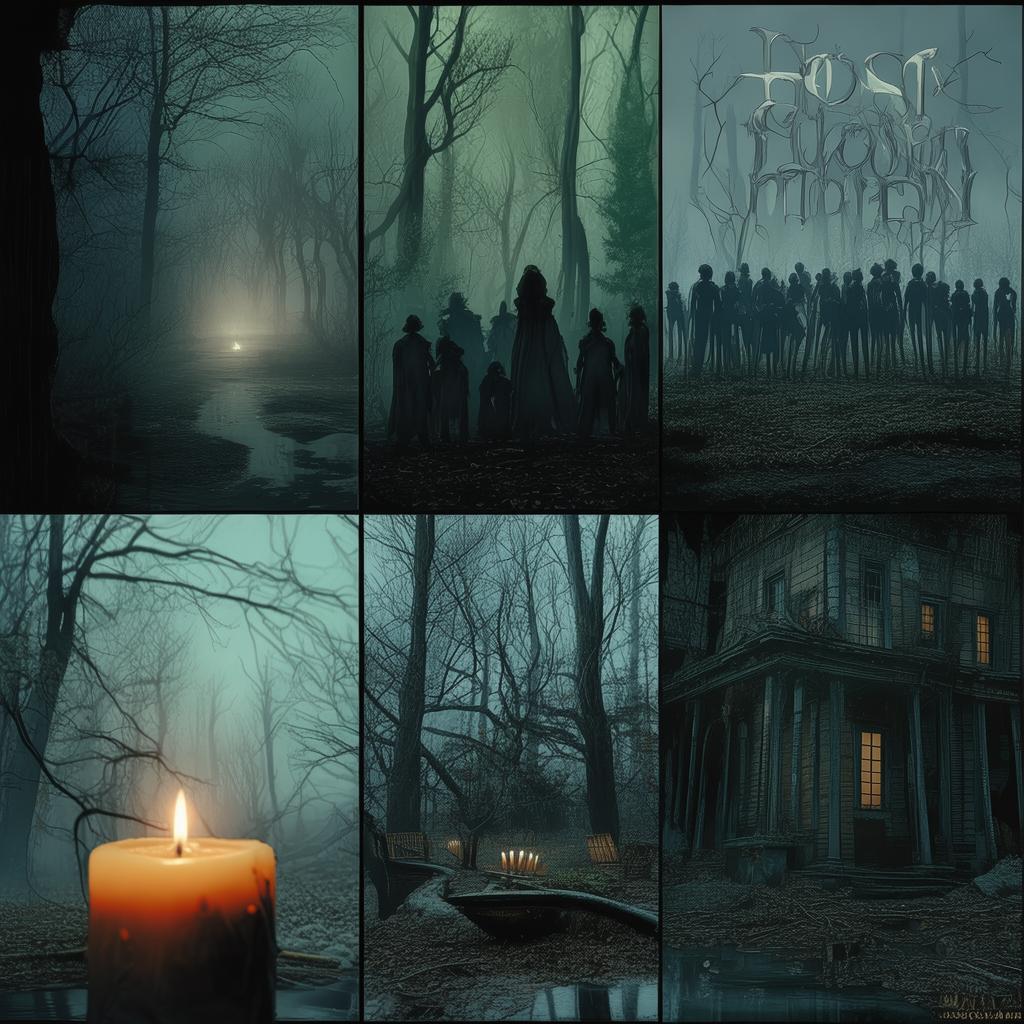Whispers of the Forgotten: The Lament of Symphony 140
In the heart of Shanghai, where the city's pulse beats with the rhythm of its bustling streets and towering skyscrapers, there lies a place where time stands still and the past lingers. The Zhang Zhen Symphony Orchestra, a beacon of classical music for over a century, is shrouded in mystery and folklore. It is said that the orchestra is haunted by the spirits of musicians who perished in the flames of a tragic fire during a performance of Symphony 140.
The story begins with a young violinist named Liang, whose passion for music is matched only by her curiosity about the orchestra's haunting. Liang's grandmother, a former member of the orchestra, speaks in hushed tones about the legend of Symphony 140, the final piece composed by the great Maestro Zhang Zhen before his untimely death. She warns Liang to stay away from the symphony, for it is said to be cursed, and those who seek to play it will face a fate worse than death.
Ignoring her grandmother's warnings, Liang is drawn to the old, decrepit hall where Symphony 140 is kept. The hall is a relic of a bygone era, with peeling wallpaper and a grand piano that looks as if it has seen better days. As Liang approaches the piano, she feels an inexplicable chill, and the air around her seems to grow heavy with an unspoken promise.
Determined to uncover the truth behind the legend, Liang begins to research the symphony and the musicians who once performed it. She learns of the great violinist, Chen, whose love for the symphony was so intense that he would play it over and over, driven by an obsession that led to his eventual downfall. It was Chen who first played Symphony 140 in its entirety, and it was Chen who perished in the fire that ravaged the hall.
As Liang practices the symphony, she begins to hear whispers, faint at first but growing louder with each note she plays. The whispers are haunting, filled with sorrow and regret. They tell her of Chen's love for music, his devotion to Maestro Zhang Zhen, and his tragic end. Liang is captivated by the story, and she finds herself drawn deeper into the past.
One evening, as Liang sits at the piano, the whispers grow louder and clearer. They speak of a love that transcends time, a love that was forbidden by the very institution that was supposed to celebrate it. They speak of a sacrifice, a sacrifice that was meant to unite two souls but instead only served to tear them apart.
Suddenly, the whispers change. They are no longer just voices of the past; they are voices of the living. Liang looks up to see the figure of a man standing before her. He is dressed in period-appropriate attire, his hair long and unkempt, his eyes filled with a deep, unyielding pain. He is Chen, the violinist who lost his life to his love for Symphony 140.

"Play for me," Chen pleads, his voice a mixture of desperation and longing. Liang hesitates, but the whispers grow louder, insistent. She takes a deep breath and begins to play, the music pouring from her fingers with a life of its own. The symphony reaches its climax, and with it, Chen's story comes to light.
It was Chen's love for Zhang Zhen, the composer, that led to his downfall. Zhang Zhen was not just a maestro; he was also a closeted gay man in a society that did not condone such feelings. Chen's love for Zhang Zhen was so profound that he would often perform Symphony 140 as a tribute to his mentor, but he was too afraid to reveal his feelings. When the orchestra discovered the truth, they banished Chen from the group, and his despair led to his tragic end.
As the symphony reaches its conclusion, Chen dissolves into a wisp of smoke, leaving behind a trail of whispers that seem to echo through time. Liang looks around, but there is no sign of Chen. The whispers grow faint, and then they are gone.
Liang sits at the piano, the symphony still resonating in the air. She knows that she has seen something extraordinary, something that defies the laws of nature. She has seen the spirit of Chen, a man who loved too deeply and who was punished for it.
The next day, Liang meets with the orchestra's conductor, a man who is said to have an uncanny connection to the past. She shares her story with him, and he listens intently. After a moment of silence, he speaks.
"Symphony 140 is not cursed," he says. "It is a love story, a story of sacrifice and passion. Those who play it must do so with a pure heart, for it is a testament to the power of love, even in the face of adversity."
Liang leaves the orchestra hall with a newfound understanding of Symphony 140 and the spirits that inhabit it. She knows that she has been chosen to play the symphony, not as a mere musician, but as a bridge between the living and the dead. With a heavy heart, she accepts her role and promises to keep the memory of Chen alive through her music.
The Zhang Zhen Symphony Orchestra performs Symphony 140 for the first time in decades, and the audience is captivated by the haunting beauty of the music. Liang stands on stage, her eyes closed, lost in the melody that she knows so well. The whispers of the past are once again with her, guiding her through the performance.
As the final note resonates through the hall, the audience erupts into applause. Liang opens her eyes, and the conductor smiles warmly. She knows that she has done more than just play a symphony; she has honored the memory of a man who loved too deeply and who, in his own way, has been reborn through her music.
And so, the legend of Symphony 140 continues, a tale of love, loss, and spectral revenge that echoes through the ages, reminding us all that some things are more powerful than time itself.
✨ Original Statement ✨
All articles published on this website (including but not limited to text, images, videos, and other content) are original or authorized for reposting and are protected by relevant laws. Without the explicit written permission of this website, no individual or organization may copy, modify, repost, or use the content for commercial purposes.
If you need to quote or cooperate, please contact this site for authorization. We reserve the right to pursue legal responsibility for any unauthorized use.
Hereby declared.









